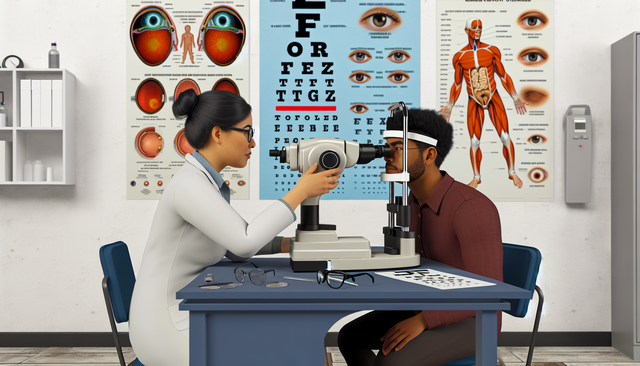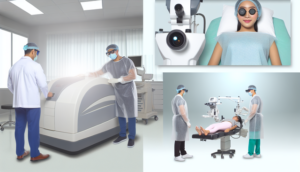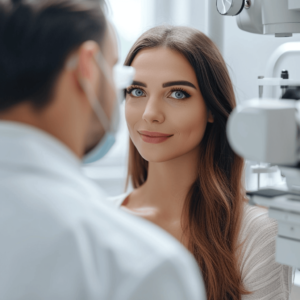
Ever squinted at the bottom row of an eye chart and thought, ‘Why am I here?’ You’re not alone! Vision tests are a common aspect of health check-ups in the USA, yet many of us don’t fully understand their importance or what to expect. Whether it’s your first test or you’re just curious about the process, let’s demystify this essential health assessment together. With a friendly chat, we’ll explore common questions and share helpful insights, making your next vision test as clear as your hopefully perfect vision!
Why Do I Need a Vision Test?
For starters, vision tests are not just about finding the right prescription for glasses or contact lenses. They are a crucial part of maintaining overall eye health. Regular check-ups can catch early signs of eye conditions such as glaucoma, cataracts, and macular degeneration, long before symptoms may become noticeable. It’s all about prevention and ensuring your peepers are in tip-top shape!
What Happens During a Vision Test?
Feeling a little anxious about your upcoming test? Don’t worry! Vision tests are simple and painless. You’ll undergo a series of checks, including reading from an eye chart to assess your visual acuity, and tests for depth perception, color blindness, and eye alignment. Plus, your eye doctor may examine the health of your eyes using bright lights to look at the structure. It’s a fascinating journey into the world inside your eyes!
How Often Should I Get Tested?
- Children: It’s recommended they have their vision checked at 6 months, 3 years, and before first grade. Consistent check-ups are vital for their developing eyes.
- Adults: Every 2 years is a good rule of thumb, but if you’re over 60 or have risk factors for eye diseases, yearly tests are advisable.
Preparing for Your Vision Test
Preparation is key! Ensure you bring previous eyewear or prescriptions with you. If you’re a contact lens wearer, bring your glasses as well. Make a note of any eye or vision problems you’ve been experiencing. Don’t forget to jot down any questions you might have for your eye doctor, ensuring you leave your appointment with clear answers and peace of mind.
After the Test
Once your test is complete, your eye doctor will discuss the results with you. If needed, they’ll provide a prescription for glasses or contact lenses and offer advice on how to maintain or improve your eye health. Remember, this is a great time to ask questions and address any concerns you may have. Your vision is precious, after all!
Embracing your vision test as a normal part of your health routine can make the experience much more enjoyable. With these insights, you’re now better prepared for what to expect, making your next eye check-up a breeze. Here’s looking at you, kid—right into those healthy, well-cared-for eyes!


